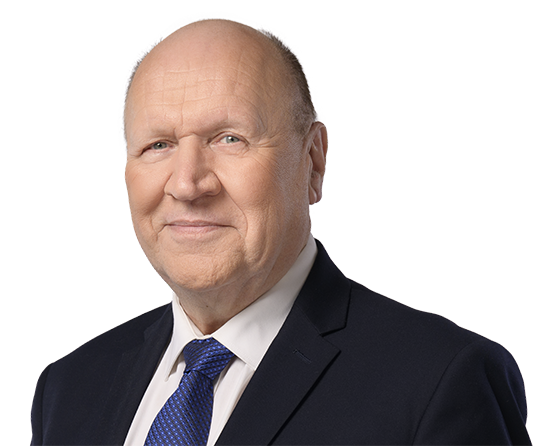
AI Profiileerimine: Mart Helme
Päevakorrapunkte: 247
4130/4130 profiling (100.0%)
Sõnavõtte kokku: 727
Analüüsi periood: 2024-01-10 - 2025-09-24
Poliitiline positsioon
Poliitiku positsioon on püsivalt ja intensiivselt opositsiooniline, raamitud kui võitlus rahvusriigi püsimajäämise eest korrumpeerunud ja ebakompetentse valitsuse vastu, keda süüdistatakse riigi viimises majanduslikule ja demograafilisele katastroofikursile. Keskseteks teemadeks on maksutõusude (eriti automaksu) vastustamine, massiimmigratsiooni tõkestamine, eesti keele ja kultuuri kaitsmine ning valitsuse tegevuse ja e-valimiste legitiimsuse vaidlustamine. Poliitiline raamistik on tugevalt väärtus- ja tulemuspõhine, kasutades sageli äärmuslikku retoorikat ("kommunistlik sund," "perversne režiim") ning nõudes läbipaistvust ja korruptsiooni lõpetamist. Aja jooksul süveneb fookus valitsuse korruptsiooniskandaalidele (nt Nordica) ning teravneb kriitika Euroopa Liidu ideoloogilise surve ("rohehullus") ja ebapiisava riigikaitse ettevalmistuse osas, rõhutades vajadust omada NATO-le lisaks iseseisvat "Plaan B-d".
Teemade ekspertiis
Poliitiku teadmiste ulatus on erakordselt lai, ulatudes sügavast riigikaitse ja julgeoleku (sh tehniline terminoloogia, luureanalüüs ja taristu kaitse) tundmisest detailse põhiseadusliku õiguse ja Riigikogu menetlusreeglite valdamiseni. Järjepidevat autoriteeti demonstreeritakse ka energeetika (tuulikute utiliseerimine, gaasireservuaarid), makromajanduse (riigiettevõtete finantskeerutamine, maksusüsteemid) ja toidujulgeoleku teemadel. Argumentatsiooni toetuseks kasutatakse süstemaatiliselt konkreetseid numbrilisi andmeid, spetsiifilisi termineid (HIMARS, BRELL, ANTS) ning ajaloolisi paralleele, sidudes poliitilised probleemid ajaloolise ja geopoliitilise kontekstiga. Kõneleja toetub sageli autoriteetsetele allikatele, viidates Riigikohtu, Riigikontrolli, rahvusvaheliste organisatsioonide (IMF, OECD) ja spetsiifiliste välisekspertide järeldustele.
Retoorriline stiil
Retooriline stiil on läbivalt äärmiselt võitluslik, agressiivne ja süüdistav, mida iseloomustab kiireloomuline ja alarmistlik toon, hoiatades pidevalt riigi hävingu ja katastroofiliste tagajärgede eest. Kõneleja toetub valdavalt emotsionaalsetele apellidele, nagu moraalne nördimus ja hirm (korruptsioon, julgeolekuohud), kasutades ohtralt solvanguid, tugevaid epiteete ("vargaerakonnad," "korrumpeerunud bandiidijõuk") ja hüperbooli, mis asetavad vastased ebamoraalsesse ja ebakompetentsesse valgusesse. Formaalsus on madal ning argumentatsiooni toetatakse sageli ajalooliste paralleelidega (stalinism, Nõukogude Liit, Goebbels) ja isiklike anekdootidega, eesmärgiga vastaseid demoniseerida ja keelduda "tsiviliseeritud debatist."
Tegevusmustrid
Poliitiku tegevusmuster on äärmiselt intensiivne ja püsivalt keskendunud Riigikogu tööle, kus ta osaleb aktiivselt peaaegu igal istungipäeval, esitades arupärimisi, kritiseerides valitsust ja vaidlustades protseduurilisi otsuseid. Tema aktiivsus on ajaliselt tihe, eriti istungjärkude ajal, ning väljaspool parlamenti toimunud tegevused (kohtumised ärimeeste või maaelanikkonna meeleolu hindamine) on harvad ja teenivad peamiselt parlamendidebattide toetamise eesmärki. Argumentide kaalukuse suurendamiseks viitab ta järjepidevalt oma varasemale laiaulatuslikule kõrgetasemelisele kogemusele, nagu siseministri, suursaadiku ja Vene vägede väljaviimise läbirääkija rollid.
Opositsiooni hoiak
Opositsiooni peamine ja järjepidev sihtmärk on Reformierakonna juhitud valitsuskoalitsioon, eriti peaministrid Kaja Kallas ja Kristen Michal, keda sildistatakse "korruptiivseks režiimiks" ja "globalistide" hüpiknukkudeks. Kriitika on äärmiselt intensiivne ja mitmetasandiline, keskendudes nii poliitilisele ebakompetentsusele (maksutõusud, majandus) kui ka moraalsetele ja protseduurilistele rikkumistele (korruptsioon, seaduste rikkumine, parlamentarismi hävitamine). Keskne süüdistus on vastaste tegevus Eesti riikluse hävitamise ja rahva reetmise nimel, kaasates süüdistusi ka õigussüsteemi (prokuratuur, eriteenistused) politiseerumises ja "süvariigi" teenimises. Opositsioon välistab igasuguse kompromissi, nõudes valitsuse ja ministrite kohest tagasiastumist ning ähvardades vastaseid tulevikus kriminaalvastutusele võtmisega.
Koostööstiil
Poliitiku koostööstiil on valitsuskoalitsiooni suhtes järjepidevalt konfronteeriv ja kompromissitu, kusjuures kompromissivalmiduse asemel nõutakse valitsuse tagasiastumist või poliitika täielikku muutmist, pidades koalitsiooni korrumpeerunuks ja ebakompetentseks. Erakondadeülene koostöö piirdub abstraktsete üleskutsetega "üldrahvalikule konsensusele" riigikaitse või rahvastikukriisi teemadel või taktikaliste katsetega meelitada koalitsiooni üksikuid liikmeid opositsiooni poolele (nt automaksu tühistamiseks). Samal ajal on koostöö opositsioonifraktsioonide (Isamaa, Keskerakond) vahel tugev ja järjepidev, keskendudes ühistegevusele, solidaarsusele ja ühiste arupärimiste esitamisele valitsuse vastases võitluses.
Regionaalne fookus
Poliitiku regionaalne fookus on järjepidevalt kriitiline, keskendudes maapiirkondade väljasuremisele, elanikkonna kahanemisele ja valitsuse regionaalpoliitika puudumisele, kasutades konkreetseid näiteid Lääne-Eestist (Pärnu, Saaremaa, Läänemaa) ja Ida-Virumaalt. Ta rõhutab korduvalt vajadust eelistada kohalikke elutähtsaid infrastruktuuriprojekte (Via Baltica, Haapsalu/Pärnu raudteed, Saaremaa püsiühendus) Rail Balticu asemel ning kritiseerib keskvalitsuse meetmete (nt automaks, koolide sulgemine) negatiivset mõju maaelule. Aja jooksul on regionaalne teema tihedalt seotud riikliku julgeolekuga, rõhutades Lõuna-Eesti ja Ida-Virumaa piirialade haavatavust ning vajadust investeerida neisse piirkondadesse julgeolekupuhvrina. Kuigi fookus kaldub periooditi tugevalt rahvusvahelistele teemadele, on maaelu toimetulek, haridusvõrgu säilitamine ja kohalike omavalitsuste probleemid (sh Tallinn) püsivalt esindatud kui näited riigi ebaõnnestunud juhtimisest.
Majandusvaated
Poliitiku majandusvaateid iseloomustab vankumatu vastuseis igasugustele maksutõusudele (käibemaks, automaks, aktsiisid), mida peetakse majandust tapvaks "surnuks maksustamiseks" ja ebakompetentse fiskaalpoliitika sümptomiks, nõudes samal ajal riigieelarve täitmist investeeringutulude ja väliskapitali maksustamise kaudu. Ta on tugev odava põlevkivienergeetika taastamise pooldaja, pidades rohepööret ja taastuvenergiat (eriti tuuleparke) majandust lammutavaks "hiigelräkitiks" ja korruptiivse siseringi nuumamiseks. Kõneleja kritiseerib teravalt riigi raha raiskamist ja korruptiivset rahapesu gigantomaaniliste projektide (Rail Baltic, Nordica, Ukraina toetused) kaudu, rõhutades vajadust toetada esmajärjekorras vaeseid Eesti elanikke, kodumaist ettevõtlust ja toidujulgeolekut. Tema majandusfilosoofia keskendub maksukoormuse alandamisele, riigi sekkumise vähendamisele eraomandisse ning läbipaistvuse suurendamisele riigihangetes ja kulutustes.
Sotsiaalsed küsimused
Poliitiku sotsiaalne profiil on äärmiselt konservatiivne ja traditsionalistlik, keskendudes peamiselt massiimmigratsiooni (sh agressorriikidest ja Kesk-Aasiast) eksistentsiaalsele ohule eesti rahvusriigile, keelele ja sisejulgeolekule, nõudes samal ajal agressorriigi kodanikelt valimis- ja relvaõiguse äravõtmist. Moraalsetes küsimustes vastustatakse ägedalt abieluvõrdsust ja riiklikult rahastatavat aborti, sidudes need teemad demograafilise kriisi ja traditsioonilise perekonnakaitsega, ning nõutakse eestikeelse hariduse ja rahvusülikooli kontseptsiooni absoluutset kaitsmist. Kuigi rõhutatakse rahvuslikku julgeolekut läbi range migratsioonipoliitika, kaitstakse samal ajal absoluutseid kodanikuvabadusi, vastustades riigi sekkumist, ideoloogilist tsensuuri, sundvaktsineerimist ja vihakõneseadust, sildistades vastaspoolt sageli "fašistlikuks" või "totalitaristlikuks" ideoloogiaks.
Seadusandlik fookus
Poliitiku seadusandlik fookus on valdavalt suunatud valitsuse algatatud eelnõude agressiivsele vastustamisele, eriti maksutõusude (sh automaksu) ja riigieelarve osas, süüdistades valitsust põhiseaduse ja menetlusreeglite rikkumises ning suvaõiguse kehtestamises. Keskseteks prioriteetideks on e-valimiste süsteemi kaotamine või põhiseaduslikkuse vaidlustamine ning kolmandate riikide kodanike valimisõiguse piiramine kohalikel valimistel. Toetavate algatuste puhul rõhutab ta riigi julgeoleku (sõjaväestatud piirivalve taastamine, kaitsevõimekuse projektid) ja rahvusliku identiteedi tugevdamist. Läbiv teema on nõue suurendada riigi läbipaistvust, kehtestada tsiviilkontroll eriteenistuste üle ning uurida korruptsiooni ja prokuratuuri poliitilist kallutatust.